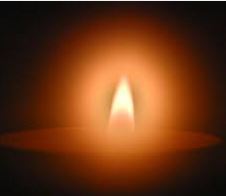I formally became the disciple of Zen Master Pu Yu of Bubble Spring Temple on Drum Mountain in Fujian Province, China, right after the end of the Cultural Revolution in the late 1970’s. At that time, the temple had few monks and hardly any visitors. After the private ceremony, Master Pu Yu gave me a pep talk that has guided my life since. He talked about Zen tradition, the temple’s history, and also spoke more informally and personally to me.
“Shantung,” he said, “I can see by looking at your big earlobes that you will be financially successful, so I know you will do much to support Buddhism and spiritual teachings.” He said this with a teasing smile. When I smiled in response, his expression became more serious. He then said something that surprised me and that has stuck with me ever since.
“Shantung, do no evil, and also do not do good.”
I was very surprised. “Do no evil: do good” is one of the fundamental teachings of Buddhism. Master Hui Neng, the Sixth Zen Patriarch, always stressed this teaching to his disciples. How could the master ask me not to do good?
Master Pu Yu looked at my puzzled expression, smiled, and added, “I know you must be wondering, why not do good?” After a pause, he continued.
“You know when you do bad things you create bad karma, and that is not good. When you do good deeds, you create good karma. But good karma is still karma, and karma is what we need to be free from. “ I became very quiet and attentive. The master continued.
“Why isn’t it good to do good deeds and accumulate good karma? Because when you do good deeds, something incomplete or unsatisfied lingers. For example, let’s say you’re a rich person who supports a young man by helping to provide a living and education for many years until he graduates from college and enters society. You do this with a good heart, selflessly, without any expectation in return. Later on, when the young man becomes successful and well known, and people mention that he received a lot of help when he was younger, he denies that he ever received any help from you, and even goes so far as to bad-mouth you. At that point, you will think, ‘But I have given you so much, without expecting any return, why on the contrary you bad-mouth me!’ You will inevitably be upset.
Or, as another example, you might contribute much to people in your village – food, clothing, and so on. People love you and praise your generosity. But one day another rich person moves to the village. He builds bridges and roads, establishes a hospital, and does good deeds on a much larger scale. You will inevitably compare yourself to him, and feel that your good deeds don’t measure up to his.
Do you see? This is what I mean when I say that good deeds are somehow incomplete or unsatisfied.”
I was puzzled. I was about to ask, “So, Master, what should I do?”
Before I could speak it, Master Pu Yu continued.
“Do not try to do good deeds. Just work on yourself. Be a candle. A lit candle can illuminate a small space. Continue to work on yourself; expand the light, so that the candle becomes a torch. A torch can illuminate a larger space. Then make yourself into a bonfire that can illuminate an even bigger space. A candle, torch, or bonfire, each gives out light naturally, according to its size. There is no trying; there is no effort involved. If you are a candle, you can’t choose to illuminate a larger space; if you are a bonfire, you can’t limit yourself to a smaller space.
“Just focus your work on yourself. Knowledge comes from outside, but wisdom comes from a tranquil mind. As you work on yourself, the capacity of your heart will increase to embrace more and more space and time, on an ever-larger scale. This is the change from candle to torch to bonfire. As this happens, whatever you think or do is naturally good and beneficial to people, society, and all living beings; but it is so natural that there is no effort toward “good deeds”. When you live your life this way, and you are not thinking about whether what you do is good or great, then there is no good karma, and you are set free from karma.”
This is in line with Taoist teaching about being in tune with nature. Nature does not need to make any effort, but everything still happens. So work silently on yourself. People on a spiritual path usually do not draw public attention to being on spiritual path. Spiritual people are not aware that they are spiritual. They cultivate themselves, and everything is done in accord with nature, as revealed through self-cultivation.


Personally, I don’t understand why we must pay for precious life bad karma – so called done by some other “person life period” . If we were “that person” , why the present “us” / self do not know who we were? So that we know “what bad ” we had done? Without knowing what bad karma my “previous me” had done, it difficult to change or undo the bad karma. All we know – are been (told by astrologer, fengshui masters, fortune tellers) that our present life is difficult due to our bad karma. Very sad each time, we try to think what we had done bad. What about certain ppl/ community who don’t believe / must not believe
in karma at all. So they are “free” and have no need to repay back anything.! –